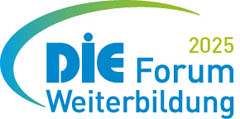LINQ 2013 at FAO in Rome
Rome (I), June 2013 - More than 200 attendees from four continents and over thirty countries contributed to a vibrant conference dialogue at LINQ 2013 on 16 - 17 May. LINQ 2013 participants gathered at the global headquarters of the United Nations' Food and Agricultural Organization (FAO) in Rome, Italy to discuss the future of international learning innovations and quality.
Keynote speeches by prominent experts in the fields of educational innovation and representatives of the European Commission, UNESCO, and CEDEFOP complemented a great variety of ongoing research projects and state-of-the-art papers presented during the conference. In his introductory speech, the LINQ Conference Chair, Christian M. Stracke, pointed out the need for bridging learning innovations and learning quality, which is the core objective of LINQ. The success of LINQ 2013 has inspired conference organizers from the University of Duisburg-Essen to begin preparations for LINQ 2014, expected to take place on the island of Crete next May.
Highlights from the LINQ 2013 Plenum include elaboration by António Silva Mendes, Director of the European Commission and Coordinator of the European Union’s Lifelong Learning Programme on the importance of quality improvement in learning outcomes. Silva Mendes asserted the efficacy of learning programmes in promoting employment chances; the role the EU can play in supporting member states transfer successful schemes to other members; and the importance of developing benchmarking activities to monitor said schemes’ success in new contexts.
Tony Bates of Tony Bates Associates provided LINQ 2013 with an analysis of the most recent forms of open education, concluding that open-access education must be accompanied by quality assessment to ensure its value for learners. UNESCO OER Chairs Rory McGreal (University of Athabasca) and Fred Mulder (Open University of the Netherlands) emphasized the advantages Open Educational Resources (OER) have provided to contemporary learners. McGreal underlined the need for free education and open mobile access, whereas Mulder explained the broad, multifaceted meaning of open education, including demand-side arguments for opening up education.
Further keynote speakers included Jay Cross of the Internet Time Alliance, expert and inventor of the term "eLearning", who focused on the need for integrating learning into work and the value of happiness for learning. Christian-Friedrich Lettmayr, Director of the European Centre for the Development of Vocational Training (CEDEFOP), presented current trends in vocational training in Europe. Ignasi Labastida, board member of the OCW Consortium and Creative Commons, explained the value and benefits of open licenses and pleaded for an opening and sharing of educational resources.
Miguel-Angel Sicilia of the University of Alcalá expounded on linked open data and its connections to the evolution of the semantic web, exemplifying this "web of linked learning" through the Virtual Open Access Repository VOA3R. Finally, Christian M. Stracke introduced the International Association ICORE for Open Research and Open Education and the results of its first meeting on the day before LINQ 2013.
On 17 May, four parallel sessions gave invited speakers, research projects, and paper authors thematic space in which to present their work. More information about LINQ can be found online at the official LINQ website, including videos of the complete conference, the conference proceedings, and information about future events.








